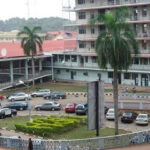
Akwa Ibom State Agency for Community and Social Development has said a total of 1,055 beneficiaries would be given N150,000 each in the second phase of its AK-CARES intervention in the state.
Acting General Manager of the agency, Mr Martins Umoh, who disclosed this while speaking with newsmen in Uyo, Akwa Ibom State, said the development represented a massive leap from the first phase, which recorded 353 beneficiaries who received N100,000 each.
He explained that the agency has executed about 450 projects in the state since its inception; with the aim of impacting communities in the rural areas in line with Governor Umo Eno’s ARISE Agenda.
Applauding the governor for finding it necessary to establish an agency geared towards bringing community developments to the rural communities, Umoh revealed that more plans and strategies have been mapped out for the second phase of AK-CARES.
He added that AK-CARES has affected diverse sectors of the economy, such as education, health and even businesses, adding that through the agency, farmers, low income earning families and youths would be impacted.
Speaking on how the beneficiaries of the scheme are selected, Mr. Umoh asserted that the agency works with the state Social Agency Safety Net Register to get names of people between the ages of 18 and 40.
He stated that the scheme is set to work with the gender percentage of 60 per cent for women and 40 per cent for men, reiterating that the agency works with people who are industrious.
He said, “What the agency is required to do is just to request for the names of people it is to work with through the office in charge of the state Social Safety Net Register.
“We tell them the number of people needed and when they have the list of these names spread across the state between the ages of 18 and 40, women 60 per cent and men 40 per cent, they forward to us.
“After receiving it, we go out to verify, contacting them to really see whether they are eligible – because the scheme is strictly for people that are already engaged in one trade or the other.”
Speaking on the training process, Umoh said, “We do not only end at verification, we train them, to ensure that at the end of it when they are given the funds, they will optimize it.
“When we train them, we enroll them and then hand them over to the payment service provider – that is the bank.”
He further revealed that the disbursement link indicators are 1.1, 1.2, and 1.3.
These areas, he noted, cannot clash because they are all individually verified to curb double collections by the beneficiaries.
He stated that it is only the poor and vulnerable communities that stand to benefit, but first, those communities must register under their Community Development Association with the Ministry of Agriculture and Rural Development.
Umoh also said that it is demand-driven, adding that the agency does not go to the communities, rather they come first to the agency, adding that government only comes to intervene in three areas, education, health, water/sanitation.
He further enthused that the scheme has also ensured strict processes of intervention, monitoring and tracking to see if these monies were well spent by the beneficiaries.














